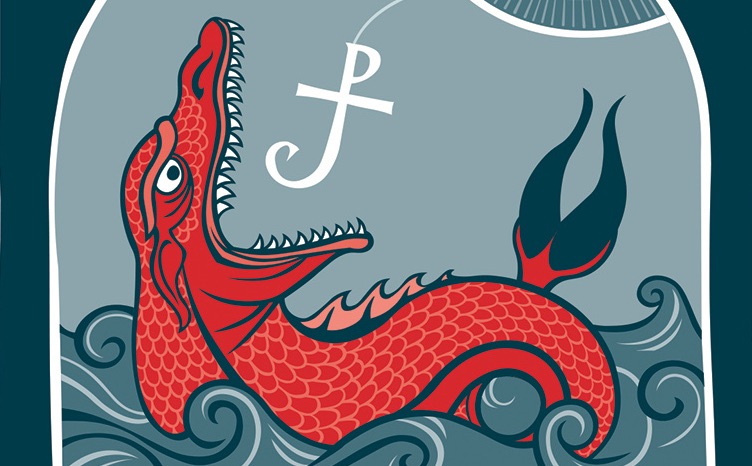
Perichoresis: The Eternal Dance
- Nikolas Greene
- Jan 27, 2024
- 4 min read
The doctrine of the Trinity is the central doctrine of Christianity, even more so than any Christologcal doctrine, for the former is directly related to the latter. Many new grammatical terms have been created or imported from Greek thought in order to get a better grasp of this central mystery. Though all of them are worthy of intense reflection, the one I'd like to focus on for this article is that of Perichoresis—rotation. The church fathers, particularly the Cappadocians, sowed the seed for this concept, but it wasn't until Saint John of Damascus' retrieval of it that it would blossom into its full beauty.
The idea of Perichoresis focuses on the reciprocal relation of love and interpenetration of the Three Persons of the Trinity. The Persons of the Godhead are not something in addition to something more fundamental within God, but are the very realities through which God is. The Divine Persons have their identity in relation to each other. Therefore, the Father is Father because He eternally begets the Son. The Son is Son because He is eternally begotten by the Father. The Spirit is Spirit because He eternally spirates from the Love between the Father and the Son. They are only distinct as Three Persons due to their relation and interpenetration of each other.
This is also the only way in which we can say along with Saint John that God IS Love. For if God were not Three Relations of Father, Son, and Spirit, then He could not be Love. For Love only exists as a reciprocal Relationship of Persons; which just so happens to be exactly what God is as Trinity. Where there is no reciprocity between persons, love cannot exist. Therefore, if God is Love, then He must be a Trinity.
Admittedly, this is not easy to grasp. The Mystery of the Triune God is not a puzzle to be solved but a reality around which to center our lives. Yet, as Aquinas and virtually the whole of the tradition will claim, true love of a thing can only flow from proper knowledge of a thing. One cannot love what one does not know. Consequently, having even a basic understanding of God's Trinitarian nature will allow us to better Love Him. Good theology leads to good spirituallty and bad theology leads to bad spirituality.
Now that the necessary framework of the metaphysics of Perichoresis has been laid, we can further explore its significance to the spiritual life. For, the notion of Perichoresis is not meant to be a philosophical abstraction with no bearing upon our lives, but is meant to open up the depth and beauty of existence.
Among the most beautiful metaphors for God's inner Trinitarian life is that of an eternal dance. The Father who eternally Loves the Son Who is the Perfect image and reflection of the Father (cf. Colossians 1:15). From all eternity the Father gives Himself completely and without reservation to the Son and the Son receives within Himself this Infinite self-gift of the Father and reciprocates it back to Him. The Love which exists between Them is the Holy Spirit, Who proceeds from this eternal relationship of self-gift and is the perfect tune to which the dance takes place. In this dance nothing is held back and no amount of Love is left unexpressed. The Persons give fully of Themselves to each other and eternally subsist in and through this dance.
This eternal dance is so self-expansive that it chooses to spill over into the free and utterly generous act of creation. Creation is not necessary, and that is a good thing. God is able to fully give of Himself in His own Trinitarian life. As such, He does not need anything else. Yet, creation exists. This means that God does not need us, but wants us. We exist solely to share in this eternal dance and orient our lives around this ultimate reality of Love. We add nothing to God's greatness yet He desires us to participate in the dance with Him.
Each person is an image of this dance and is able to reveal a sequence of it that only can be revealed through them. As images, we are not called to dance alone, but to share this learned dance with others, for to dance alone is not to dance at all.
It is not only we who are called to partake, but all of creation, each playing the part proper to it. The angels participle by assisting the terrestrial dancers. The waves participate by their ceaseless advancing and receding. The trees participate by their gently following the rhythm of the wind. The stars participate by the giving of their light and warmth. In a word, nothing that exists is not a part of the dance, even those parts which seem to go against it; for God is the great improviser, taking wrong moves and making them fit with the whole in a way that only He can.
Fear not, one needn't be an expert dancer to partake. One can sit at the feet of the master instructor and learn, and a patient and compassionate instructor He is. If we do the wrong move at the wrong time He is not there to scold us, but to teach us. The desire to learn is all He needs. All He is looking for is willingness, for all are within His reach and none lack the ability.
With this in mind, let us hasten to the dance floor, accompanied by our fellow students. Let us follow the simple yet beautiful melody of the Spirit who will guide our steps along the way. Then, once our session has expired, we will be invited to stay—to partake fully in the one true dance—the dance that knows no end and that grows in beauty with each new step.
Lord, teach us to dance like you





Comments